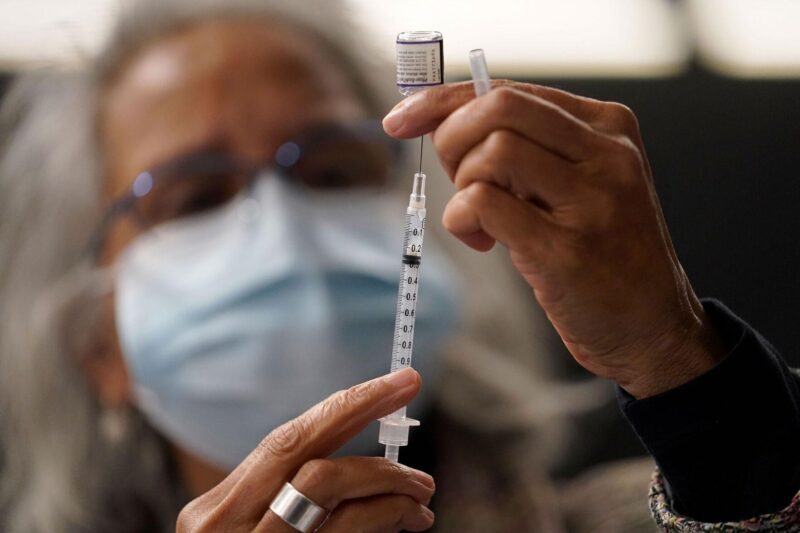Pfizer: Three vaccine doses enough to protect against omicron
Pfizer-BioNTech said three doses of their coronavirus vaccine is 'still effective' against the new Omicron variant when publishing preliminary results Wednesday

Two doses of the BioNTech and Pfizer coronavirus vaccine may not be enough to protect against the Omicron variant, the companies warned Wednesday, but stressed it was “still effective” after a third jab.
Omicron has caused global concern over signs that it can transmit faster than previous strains and fears that its multiple mutations could help it evade immune defences provided by vaccines. No deaths have yet been associated with the variant.
In preliminary results published on Wednesday, Pfizer and BioNTech said their vaccine “is still effective in preventing Covid-19, also against Omicron, if it has been administered three times”.
But they warned that “the Omicron variant is probably not sufficiently neutralised after two doses”.
According to the early laboratory research using blood serum from vaccinated people, a booster third dose generated around the same level of antibodies against Omicron as is seen after a second dose with other variants.
Blood samples from people who had received two doses of the current vaccine showed on average a 25-fold reduction in neutralising antibodies compared to the early strain of the virus, the companies said.
But they added that another part of the immune response – from T cells – were probably still effective against the variant, adding that “vaccinated individuals may still be protected against severe forms of the disease”.
Their results have not been peer reviewed.
The companies said that an Omicron-specific version of the anti-coronavirus vaccine, currently in development by BioNTech, would be available by March.
“Although two doses of the vaccine may still offer protection against severe disease caused by the Omicron strain, it’s clear from these preliminary data that protection is improved with a third dose of our vaccine,” Pfizer Chief Executive Albert Bourla said in a statement.
The announcement comes after other preliminary results from a small study in South Africa suggested there was up to a forty-fold drop in the ability of the antibodies from the Pfizer-BioNTech vaccine to neutralise Omicron, compared to the earlier Beta variant.
The results suggest “that there is definitely much less neutralisation against Omicron compared to neutralisation against the original strains that came out of Wuhan initially,” said Willem Hanekom, executive director of the Africa Health Research Institute, which carried out the study.
But he cautioned that it was important to be “extraordinarily careful” interpreting the results because they only reflect a laboratory setting.
“What we need is real world results of what is happening out there,” he told AFP.
Omicron counts more than 30 mutations on the spike protein that dots the surface of the coronavirus and allows it to invade cells.
Given the array of changes in this strain of the virus, Paul Moss, Deputy Head of the College of Medical and Dental Sciences at the University of Birmingham, said this kind of result “was not unexpected”.
However he said “emerging evidence from booster vaccinations shows that they are capable of generating very high levels of antibody which should potentially still provide valuable protection against infection”.
The detection of the first Omicron cases two weeks ago coincided with jumping infection numbers across the world, and the variant added fuel to concerns about a global Covid resurgence.
Dozens of nations have re-imposed border restrictions in response to the spread of the new virus variant and raised the possibility of a return of economically punishing lockdowns.
Scientists from the World Health Organisation and the United States government told AFP this week the Omicron variant appeared to be no worse than other coronavirus strains but said more research was still necessary.
Omicron has so far been found in 57 countries, the WHO said.
How to submit an Op-Ed: Libyan Express accepts opinion articles on a wide range of topics. Submissions may be sent to oped@libyanexpress.com. Please include ‘Op-Ed’ in the subject line.
- Libyan MP cautions new UN envoy over approach - January 27, 2025
- Oil expert criticises Libya’s public sector hiring freeze - January 27, 2025
- Trump proposes Gaza population transfer plan - January 27, 2025


